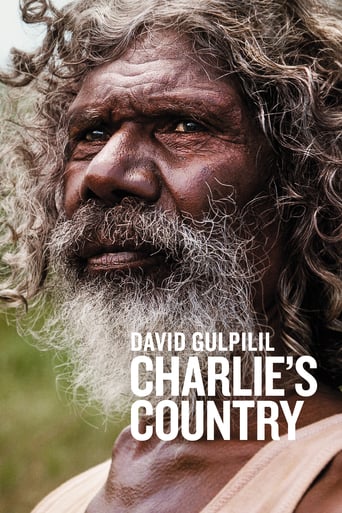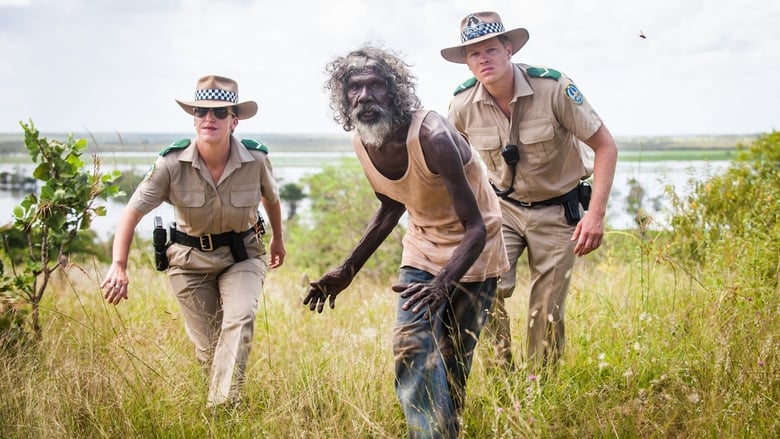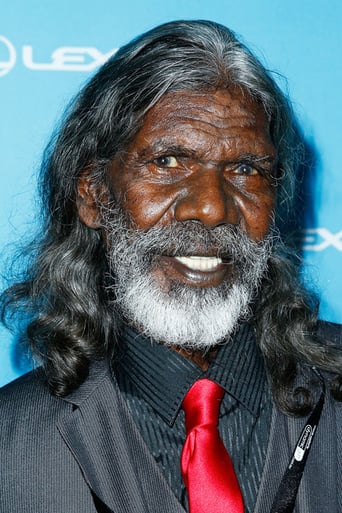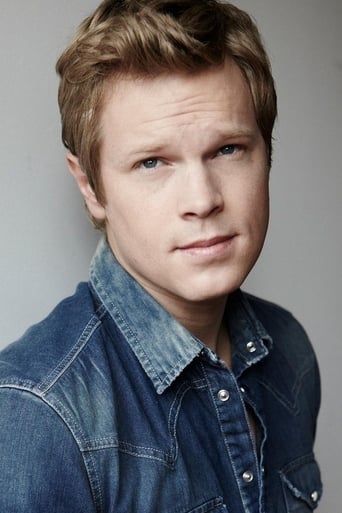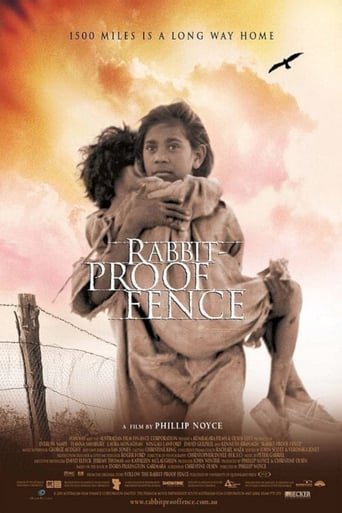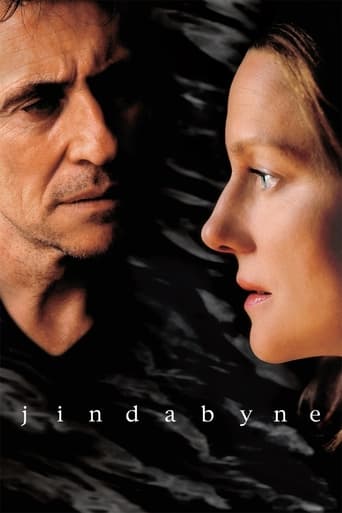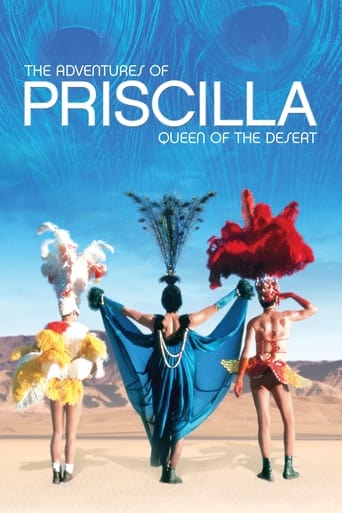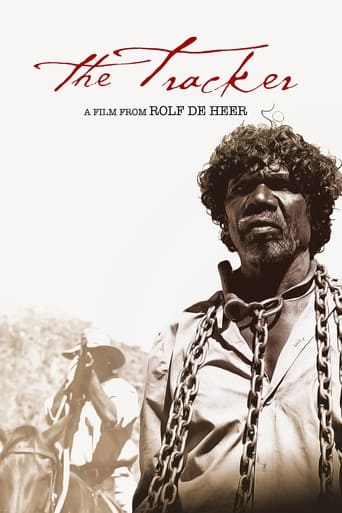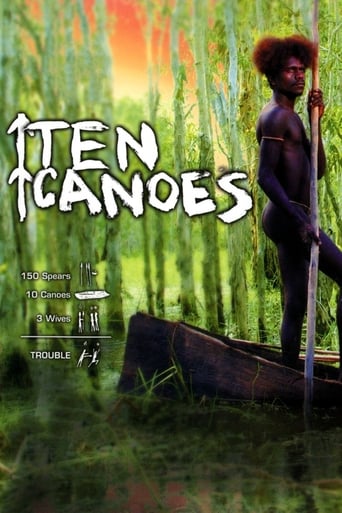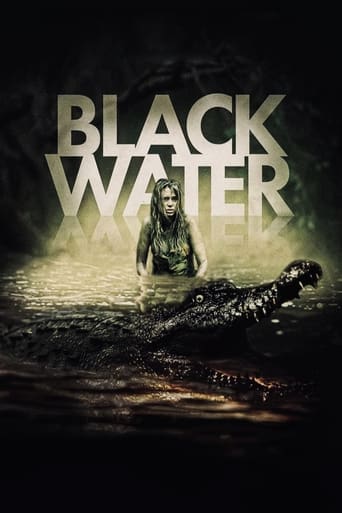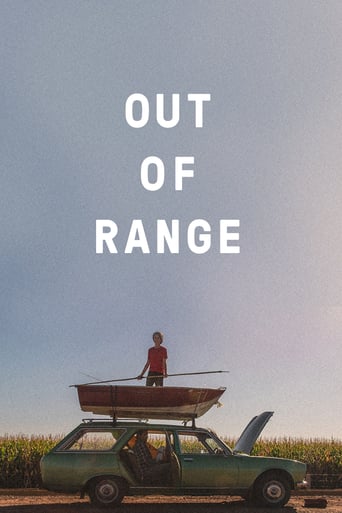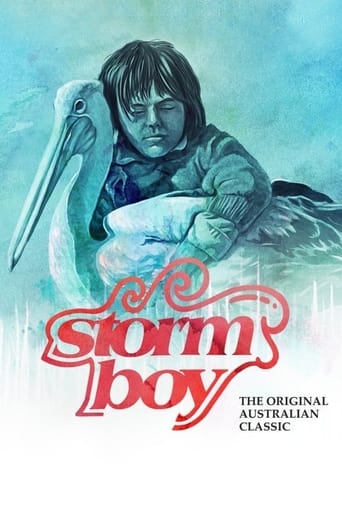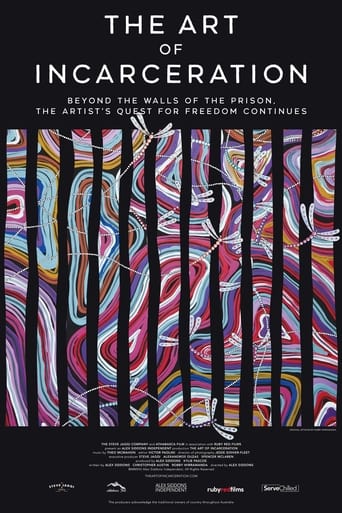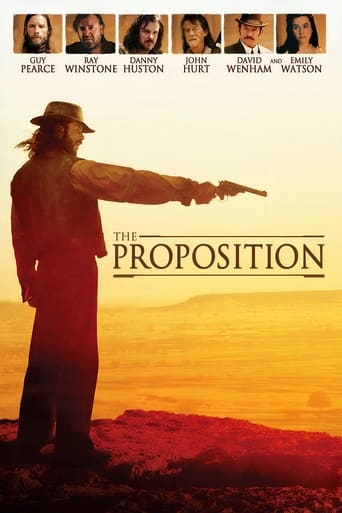Charlie's Country (2013)
Blackfella Charlie is getting older, and he's out of sorts. The intervention is making life more difficult on his remote community, what with the proper policing of whitefella laws that don't generally make much sense, and Charlie's kin and ken seeming more interested in going along with things than doing anything about it. So Charlie takes off, to live the old way, but in doing so sets off a chain of events in his life that has him return to his community chastened, and somewhat the wiser.
Watch Trailer
Cast


Similar titles
Reviews
The Worst Film Ever
Great Film overall
Good movie but grossly overrated
A Masterpiece!
CHARLIE'S COUNTRY is a well made piece of social drama from Australia. The concept of the film is to explore race relations between white Australians and the Aborigines, and it's not a very happy story; as expected, racism and the general treatment of Aborigines as second-class citizens has led to poverty and hopelessness on a massive scale. I enjoyed the way that these themes played second fiddle to what is essentially a character-focused drama telling of one old-timer's efforts to get by.I was absolutely delighted when I found out this film's protagonist was played by none other than David Gulpilil, who I've loved ever since I saw his debut feature, WALKABOUT. Gulpilil is typically excellent here, bringing his world-weary character to life with an unheralded realism; he's lived this situation, you can see it in his eyes. CHARLIE'S COUNTRY is a slow film, ponderous in places, but the quality of the direction and the naturalism of the acting is what sees it through.
Dutch Australian film director Rolf de Heer take a look of the years running problems of Aboriginal Australians in his last movie Charlie's Country which is shown in many festivals around world. We see the problems caused by two sides from the eyes of an old and stubborn member of Aborigins, Charlie who feels like a outlander on his own lands.Charlie can't accept being assimilated or living like how white Australians impose with the help of his stubborn and shrewd character. With the stunning performance of David Gulpilil Charlie represents all his nation with his riots, outcries, falls and obedience. He makes same mistakes that his nation did but also resists to forget his roots deep in the lands. He is driven away from his village to wild, from there to the big cities and it's crowd and chaos. It takes time for him to accept that this land is same land he loves with every living on it even it has changed.Director's style resembles our Cannes awarded director Nuri Bilge Ceylan with long cuts and silent scenes. Showing same scenes in different spirits and witnessing alteration of Charlie in these scenes can be boring. And yet this style of filming helps a lot to feel the characters and their states better and deeper. Audiences feel all strugglings of all Aborigins from the eyes of Charlie.Fortunately de Heer was in theater for answering questions of us. His care to Aborigins impressed me and hearing all questions about Aborigins proved that he did really good job in his movie with making a difference for Indigenous Australians in the eyes of everyone who watched the movie. That means shooting the target you aimed. I hope it will not take centuries to solve all issues in Australia as he said.
Aboriginal Australian dancer David Gulpilil has appeared in a number of movies over the years: "Walkabout", "The Last Wave", "Crocodile Dundee" and "Rabbit-Proof Fence" are among his most famous roles. His performance as the titular character in Rolf de Heer's "Charlie's Country" might get remembered as his most important role. Gulpilil plays a Yolngu man living on a reservation with a collection of other Aborigines. Even though the army doesn't enter the area to mow people down, it's still impossible for the people on this reservation to live traditionally, as the police confiscate any possession deemed to be a weapon. So then Charlie decides to move out into the bush to live how he wants."Charlie's Country" will likely be the only Yolngu-language movie that you will ever see. In fact, it's the first movie that I've ever seen spoken mainly in an indigenous Australian language. The presence of words adopted from English is an ever present example of how much Australia's white population has impacted the indigenous population.The movie should serve as a reminder of how Australia's indigenous population lives. Once the island's only inhabitants, they're now 1% of the country's population (but 40% of the prison population). Unemployment and alcoholism are rampant - Charlie even mentions how the white people introduced alcohol and ganja to the Aborigines - and it was only in the last decade that Australia's government offered an official apology for stealing Aboriginal children to get raised as servants for white people. Really good movie.
Australia's official submission into this year's Best Foreign Language category at the Academy Awards, famed director Rolf de Heer's raw, uncompromising and impressively beautiful film is easily the most accomplished and important tale to come from our shores in quite some time and acts as a very personal journey for one of our country's most recognisable actors, David Gulpilil.To understand the power of Charlie's Country and the telling nature of its tale, one must look into how the film eventuated and what it harboured for Gulpilil in particular. Despite his success as an actor that started off in Nic Roeg's Walkabout in 1971, Gulpilil had found himself on hard times, the victim as sadly many indigenous people face in the country of alcohol abuse that saw him incarcerated in a federal penitentiary. Friends for many years after their collaborations in 2002's The Tracker and 2006's Ten Canoes (Australian film's worthy of being tracked down) de Heer visited Gulpilil in jail where the seeds of Charlies Country were formed when Gulpilil expressed a great desire to once more work with his friend and director. From there a story that was close to Gulpilil's heart began to be formed and it's where the quiet understated power of de Heer's work stems from.With a mere look, or with the camera following his every move through the vast beauty of the Australian outback or the more scary surrounds of Darwin, Gulpilil commands the screen and de Heer controls this wonderfully, not at all afraid to let Gulpilil's face tell us all we need to know. In what is undoubtedly a match between the actor and the real man, Gulpilil inhabits this man Charlie with a grace and understanding as he struggles to come to grips with his mother country slowly but surely coming under more influence from the white man. This small scale story of one man's trials and tribulations masks a much larger overall problem Australia has at its core regarding the treatment of our indigenousness people and a failure to properly combine the old and the new without losing the connection to the land and customs that for thousands of years have been integral to the culture of these people. All these elements within Charlie's Country play out in such a manner that never becomes overbearing, for there is subtle humour here (water buffalo anyone?) and grace from all involved that gives Charlie's Country not only a heart but a recognisable humanity.It shouldn't be surprising that Charlie's Country is a finely crafted and effective movie, for de Heer has long shown his ability to create memorably moving films and his previous collaborations with Gulpilil are some of the finest ever made in this country concerning indigenous culture. From Gulpilil's award worthy turn (which was rewarded with a Best Actor win at this year's Cannes Un Certain Regard festival), Graham Tardif's beautiful piano score and de Heers professional direction, this is Australian filmmaking and storytelling at its best and a moving portrait of modern day life in the harsh realities of the outback and the lives our indigenous people live in particular.4 and a half hand crafted spears out of 5 For more movie reviews and opinions check out - www.jordanandeddie.wordpress.com

